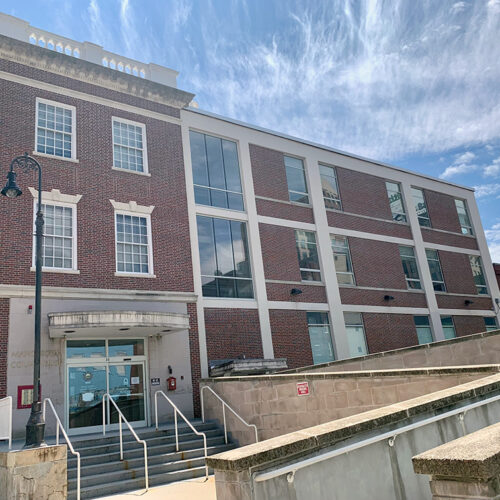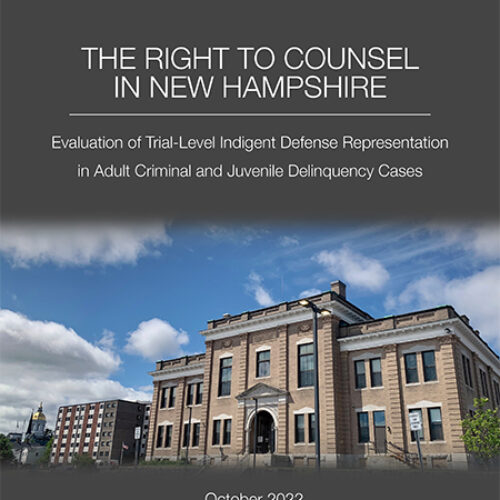New Hampshire
The state of New Hampshire funds and administers all indigent defense services in adult criminal trials. A state commission is responsible for providing oversight of services statewide.
The state of New Hampshire funds and administers all indigent defense services for adult criminal cases in its appellate court. A state commission is responsible for providing oversight of services statewide.
-
10 Counties State Funded
-
10 Counties State Administered
-
10 Counties with a Commission With Statewide Authority
-
10 Counties State Funded
-
10 Counties State Administered
-
10 Counties with a Commission With Statewide Authority
The New Hampshire Judicial Council (NHJC) is a state agency charged with ensuring the efficient administration of justice statewide. One of its responsibilities is funding, administering, and overseeing the indigent defense system. The NHJC is composed of 23 members, who are either appointed by the governor and council or the chief justice, or automatically made a member by virtue of holding another position. The NHJC has an indigent defense subcommittee (IDS), composed of four NHJC members, which is responsible for making decisions relating to the delivery of indigent defense services across the state of New Hampshire.
The NHJC itself does not provide any direct representation; rather, it contracts with indigent defense providers and is statutorily authorized to supervise contractor performance. For primary services, the NHJC is required by law to contract with an organization approved by the state bar association. Historically, the NHJC has contracted with a nonprofit, the New Hampshire Public Defender (NHPD), which delivers services through 10 branch offices. NHPD also provides representation for juvenile and appellate cases. For conflict services, the NHJC first contracts with private attorneys or law firms under a flat fee, and finally assigns cases to private attorneys paid hourly.
The New Hampshire Judicial Council (NHJC) is a state agency charged with ensuring the efficient administration of justice statewide. One of its responsibilities is funding, administering, and overseeing the indigent defense system. The NHJC is composed of 23 members, who are either appointed by the governor and council or the chief justice, or automatically made a member by virtue of holding another position. The NHJC has an indigent defense subcommittee (IDS), composed of four NHJC members, who is responsible for making decisions relating to the delivery of indigent defense services across the state of New Hampshire.
The NHJC itself does not provide any direct representation; rather, it contracts with indigent defense providers and is statutorily authorized to supervise contractor performance. For primary appellate representation, the NHJC contracts with a nonprofit, the New Hampshire Public Defender (NHPD), which delivers services statewide through its appellate unit. NHPD also provides adult trial and juvenile representation. For conflict services, the NHJC first contracts with private attorneys or law firms under a flat fee, and finally assigns cases to private attorneys paid hourly.

Dig Deeper
Who serves on the commission?
How does the commission cede power to a non-appointed advisory committee?
Who determines the payment structure for each indigent defense provider?
In which branch of state government does the indigent defense system reside?
Support Our Work
Criminal justice issues that disproportionately harm poor people, such as wrongful convictions and over-incarceration, cannot be fixed if indigent defendants are given attorneys who do not have the time, resources, or qualifications, to be a constitutional check on government. Yet, investment in improving indigent defense services remains largely neglected. The Sixth Amendment Center is the only nonprofit organization in the country that exclusively examines, uncovers, and helps fix the root of the indigent defense crisis in which inequality is perpetuated because poor defendants do not get a fair fight.
The Sixth Amendment Center is a tax-exempt 501(c)(3) nonprofit organization under EIN: 45-3477185.
Donations are tax-deductible to the fullest extent allowable under the law.





